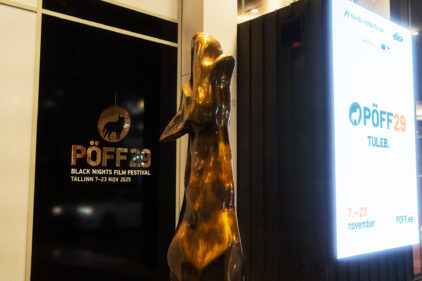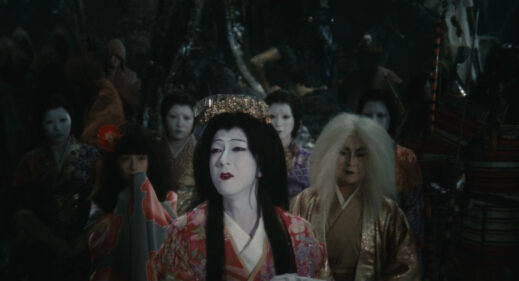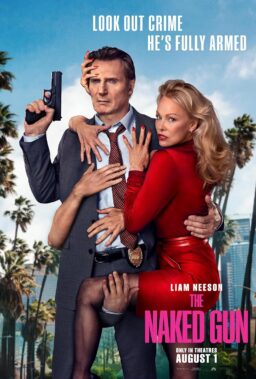TELLURIDE, Colo. – “It was one of the greatest records I had ever heard,” Terry Zwigoff remembered. “I knew I had to find out who had made it, and whether they were still alive.”
The name of the record was “State Street Rag.” It came out in 1934 on the Bluebird label, and it was apparently by a black string band led by someone named Louie Bluie, who had disappeared into the mists of lost music history.
Zwigoff was a young jazz record collector who hoped to find Louie Bluie and make a film about what had happened to him. His search led him to blues festivals around the country, and at one of them he finally came across the same sound he’d heard in that 1934 recording. The men playing it were two Chicagoans, W.H. Armstrong, 76, and Ted Bogan, 75, and if they were lost they didn’t know it, because they’d been working steadily as musicians for more than 60 years.
Zwigoff, whose documentary about the two musical legends premiered at this year’s Telluride Film Festival, had discovered Bogan and Armstrong many years after thousands of Chicagoans. As Martin, Bogan and the Armstrongs, and then, after Carl Martin’s death five years ago, as Bogan and Armstrong, they’ve been playing Chicago clubs on and off for years. They used to have a regular Monday night gig at the Earl of Old Town, they’ve appeared at Holstein’s, and their more recent records are often heard on WFMT-FM’s “Midnight Special.” Their sound is distinctive: Armstrong’s showboat fiddle, Bogan’s double-time guitar, both of them on vocals, usually doing standards such as “Summertime,” “Tennessee Waltz,” “Lady Be Good” and “Sweet Georgia Brown.”
But as “Louie Bluie,” of course, they were unknown. “We got that name one day from a woman who was a little bit drunk at the time,” Armstrong explained to me at this year’s Telluride festival. “She said I wasn’t no Louie Armstrong, but I was Louie Bluie. So that’s the name we put on the label that day.”
And as “Louie Bluie,” more than 50 years later, they were a sensation at this year’s Telluride Festival. It is a Telluride tradition to look for documentaries about musicians, and then present the films with the musicians in person. The 1982 Telluride premiere of “Say Amen, Somebody,” for example, included the electrifying onstage performance of the gospel pioneer Mother Willie Mae Ford Smith. This year, after the screenings of “Louie Bluie,” Armstrong and Bogan got onstage for an hour’s concert that got standing ovations.
The film itself will go into national release in October, and is a delight from one end to the other, not only because of the music of Bogan, Armstrong and various friends (who are seen playing on Maxwell Street, at Holstein’s and in their own living rooms), but also because of the portrait it provides of William Howard Armstrong.
Looking and acting far younger than his 76 years, Armstrong is a combination of musician, artist and storyteller. The movie features not only his fiddle-playing, but also his artwork, and there is an hilarious scene when he unlocks a case and shows a friend his voluminous illustrated and illuminated manuscript on the subject of pornography. The handmade book (which will be published next year in a collector’s edition) includes cartoons, stories, poems and drawings, all of them explaining a great deal more about human nature than about pornography.
In the film, Armstrong talks about teaching himself art as a boy in Tennessee, making colors out of his mother’s laundry bluing and walnut skins, and squeezing them out of wet crepe paper.
Armstrong is a Renaissance man. While Bogan maintains a steady smile and an inscrutable facade, Armstrong kids him, tells stories, sings his own compositions in Spanish, Italian, Polish and what he describes as Hawaiian, and often leaps to his feet for athletic violin solos. The two of them create music that is sometimes silly (their ode to the Tennessee cockroach), sometimes sweet and tender, and sometimes, as in their incomparable version of “Summertime,” as moving as any music I’ve ever heard.











